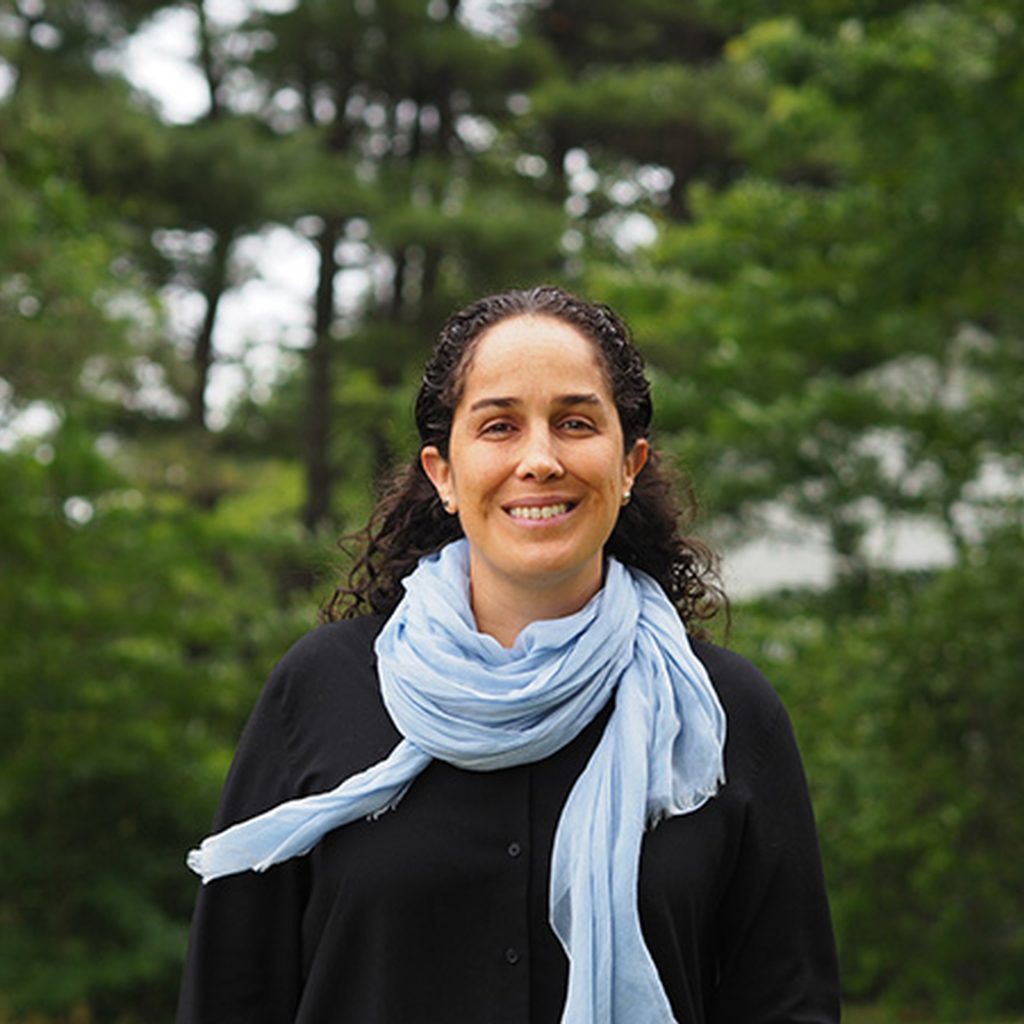New IHP dean sees academia as a way to make positive change
November 8th, 2018 | Faculty, SIT Study Abroad

“I never expected to be an academic,” says Katy de la Garza, the new associate dean for SIT’s International Honors Program. A native of Costa Rica, de la Garza attended university in the United States and worked in international development and education before she was drawn into academia.
After completing her BA in foreign affairs at Georgetown University’s School of Foreign Service, de la Garza returned to Central America, where she spent three years working in the government. It was a passion for social justice that led her there. “I come from a very small country in a region with a lot of conflict, but because of the type of democracy we had, we were able to keep the peace. I wanted to learn from our government, to see how they did that.”
Soon, though, she saw that change came very slowly in government and that nonprofits were able to bring change more quickly, so she left for the world of NGOs and got a master’s degree in international affairs at Columbia University. “I was happy with my master’s degree,” she says. “I never planned to get a doctorate.” But she saw that it was academics with PhDs, rather than practitioners on the ground, who were directing programs. “I thought if I said, ‘I have 10 years of experience in NGOs,’ no one would listen to me, but if I had a doctorate, maybe they would.”
So, after a decade working in Mexico and Costa Rica with Pro Mujer Mexico, the U.S. Peace Corps, the Nature Conservancy, and Emerge Central America Fund, de la Garza returned to the United States to start her doctorate in education at Columbia University. “It was the only program I applied to,” she says. “I knew it could open doors.”
For her dissertation on intercultural, bilingual education, she spent a year in Guatemala, shadowing teachers in rural areas. “They faced a lot of problems,” she says. Although school started in February, for example, food for the government-sponsored food program often didn’t arrive until April. “You can have the best teachers, but if a child is hungry they’re not going to be able to learn.”
Still, she explains, there was much to be hopeful about. The mothers got together every morning and made porridge for the students. It was just one example of the strong feeling of community and helping others that de la Garza witnessed—something in sharp contrast to better-funded urban environments, she says.
In addition, she says, “The teachers were incredible. Even the ones who had become teachers only out of necessity had such passion and energy.”
It was de la Garza’s doctorate experience that ultimately led her to School for International Training and the International Honors Program. “One of my friends from my doctorate program was working at SIT. He told me all about this amazing program that took students all over the world. “It was my dream job. I did my undergrad in comparative studies, and as half Mexican, half Costa Rican, I’ve always compared things. If I could go back to college and do a program, it’s the sort of program I’d want to do.” For two years, she served as program director of IHP’s Social Innovation program, which takes students to San Francisco, Uganda, India, and Brazil, until her appointment in summer 2018 to the position of associate dean.
Throughout her career, de la Garza has remained focused on working toward positive change and using her training and position as a means to accomplishing that work. Part of what keeps her grounded is some advice from her father, who migrated from Mexico to the United States at 13 and later served in the U.S. military during the Korean War: “In life, you’ll eat black beans [a staple of Costa Rica] and caviar. Enjoy the caviar, but enjoy the black beans more.”
